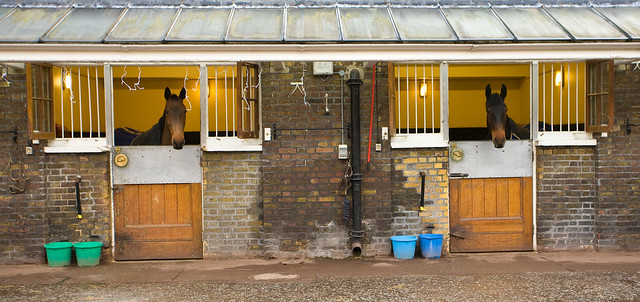Words for oxen and related words in Celtic languages.
| Proto-Celtic | *uksōn = ox, stag |
|---|---|
| Old Irish (Goídelc) | oss = elk, deer, stag |
| Irish (Gaeilge) | os [ɔsˠ/ʌsˠ] = deer (literary) oiseoil [ˈɛʃˌoːlʲ/ˈɪʃˌoːlʲ] = venison oisín [əˈʃiːnʲ/ˈɔʃiːnʲ/ˈʌʃinʲ] = fawn (young deer) Oisín = name, and a character in Irish myths oisín róin = young seal osbhuí = fawn (colour) |
| Scottish Gaelic (Gàidhlig) | os [os] = deer oisfheoil [ɔʃjɔl] = venison |
| Proto-Brythonic | *uxī = ox |
| Middle Welsh (Kymraec) | ych, ich = ox |
| Welsh (Cymraeg) | ych [ɨːχ/iːχ] = ox ych gwyllt = wild ox, bison, buffalo gwin yr ych = spring-water (“wine of the ox”) |
| Cornish (Kernewek) | oghen = oxen |
| Old Breton | ohen = ox |
| Breton (Brezhoneg) | och’en = ox |
Etymology: from the Proto-Indo-European *uksḗn (bull) [source].
| Proto-Celtic | *damos = ox, bull, domesticated animal *dametos = sheep |
|---|---|
| Old Irish (Goídelc) | dam [daṽ] = ox, stag, hero, champion |
| Irish (Gaeilge) | damh [d̪ˠaw] = ox, stag; strong man, champion, corpulent person damh alla = stag damh comhair = one of a pair of oxen, yokefellow; equal, peer damháire = bellowing, lowing (of oxen), belling (of stag) damhán = small ox damhra = oxen, yoke of oxen; stags, herd of deer |
| Scottish Gaelic (Gàidhlig) | damh [dav] = stag (antlered, up to 4 yrs old), ox, oaf, crab missing a claw damh-féidh = hart, stag cho dall ri damh ann an ceò = as blind as a bat in daylight (“as blind as an ox in the fog”) |
| Manx (Gaelg) | dow = ox, hart, stag |
| Proto-Brythonic | *daβ̃ad = sheep |
| Middle Welsh (Kymraec) | dauat, davad = sheep |
| Welsh (Cymraeg) | dafad [ˈdavad/ˈdaːvad] = sheep, ewe; one who is under the charge of a spiritual pastor defaid cymorth = sheep given to a needy person to form the nucleus of a flock dafad ddu = black sheep, prodigal son, ne’er do-well of a family defaid Dafydd Jos = waves, billows (“David Jones’ sheep”) mynd yn draed defaid = to go to ruin (“to become sheep’s feet”) |
| Old Cornish | dauat = sheep |
| Cornish (Kernewek) | davas = ewe, sheep kig davas = mutton |
| Breton (Brezhoneg) | dañvad [ˈdãː.vat] = sheep; overly kind, gentle person; cuckold, flock; small, fluffy clouds, foamy waves dañvadez = ewe |
Etymology: the Brythonic words come from *dametos, which comes from *damos. Both these words come from the Proto-Indo-European *demh₂- (to domesticate, tame) [source]. The English words tame, (in)domitable and danger come from the same PIE root [source].
More sheep and deer related words.
Sources: Wiktionary, Am Faclair Beag, Online Manx Dictionary, Teanglann.ie, eDIL – Electronic Dictionary of the Irish Language, In Dúil Bélrai English – Old Irish glossary, Geiriadur Prifysgol Cymru, Gerlyver Kernewek, Dictionaire Favereau, TermOfis, English – ProtoCeltic WordList (PDF), Etymological Dictionary Of Proto Celtic






